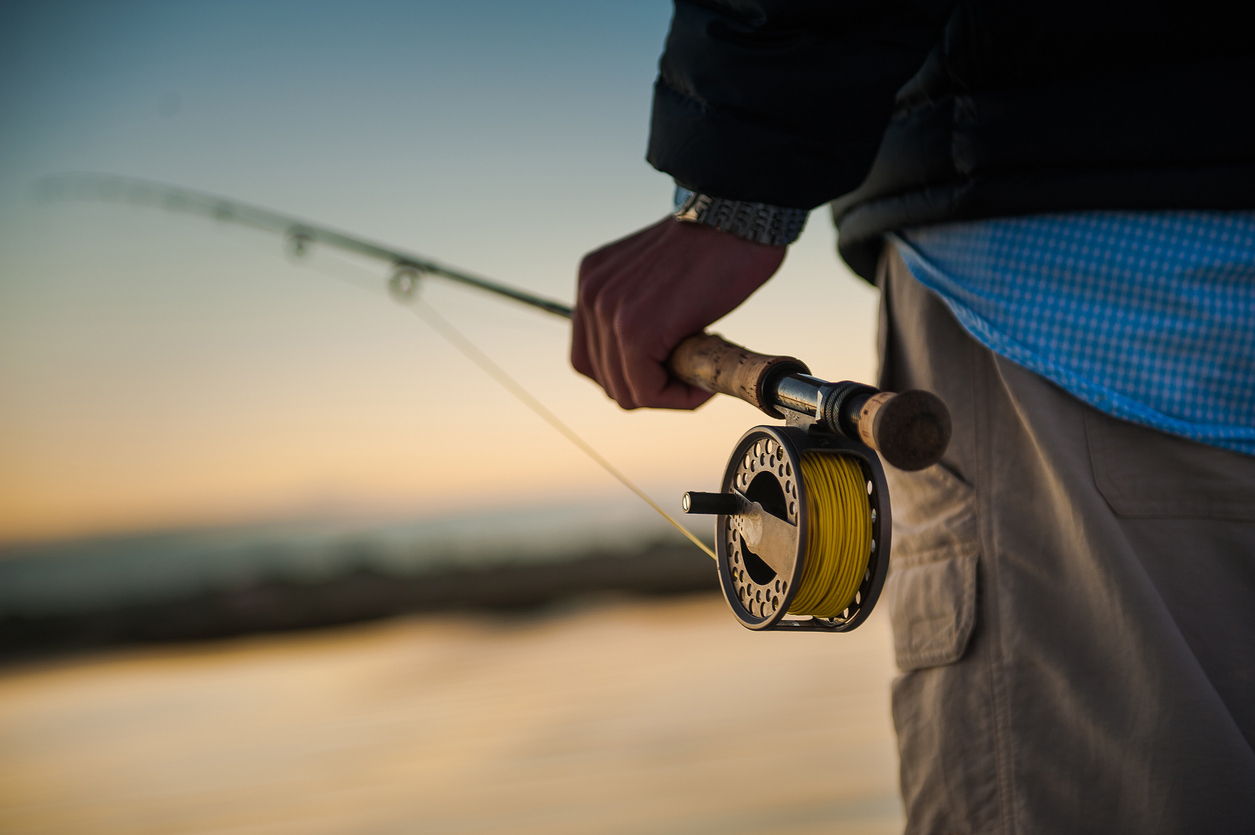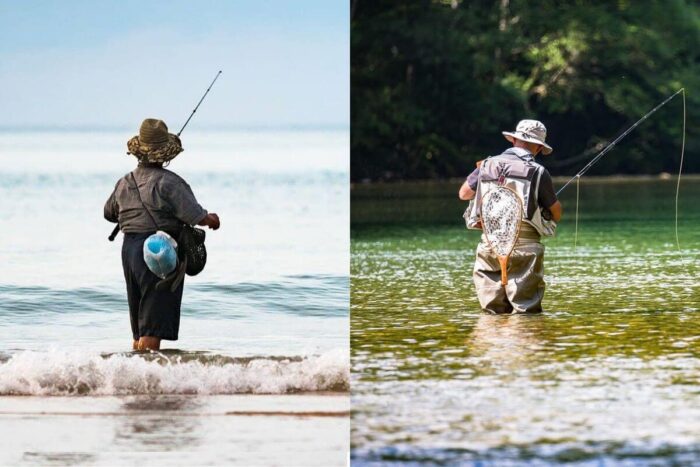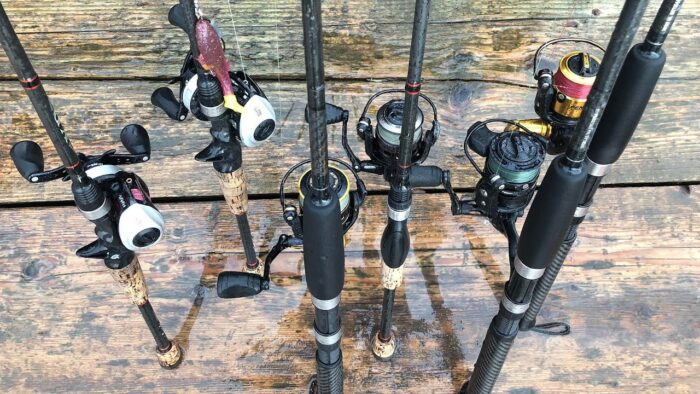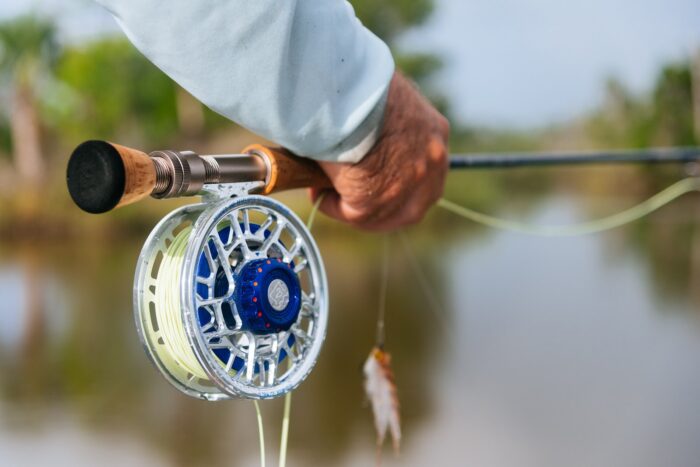
Anglers all over the world are eagerly awaiting the arrival of springtime, when they can set out to catch some of the most delicious fish in the world – both fresh and saltwater varieties. But what type of gear do you need to get started? In this article, we’ll take a look at the different types of fishing gear available for freshwater and saltwater fishing, and explain the key differences between them.
What is the Difference Between Freshwater and Saltwater Fishing Gear?

There is a big difference between freshwater and saltwater fishing gear. Freshwater fishing gear is designed to catch fish that live in and around water, while saltwater fishing gear is designed to catch fish that live in the ocean.
– One of the biggest differences between freshwater and saltwater fishing gear is how they are baited. In freshwater fishing, bait is typically placed on the surface of a river or pond, where fish can easily access it. In saltwater fishing, bait is typically placed underwater, where fish have to work a bit harder to get to it.
– Another big difference between freshwater and saltwater fishing gear is how they are handled. In freshwater fishing, rods and reels are typically handled with one hand. In saltwater fishing, rods and reels are typically handled with two hands because the reel requires more power to operate than a rod.
Overall, there are many big differences between freshwater and saltwater fishing gear. If you’re looking to start hunting fish in a new environment, it’s important to get familiar with both types of equipment before hitting the water.
Which Type of Fishing Gear is Best for Which Type of Water?
Different types of fishing gear are best for different types of water. Freshwater fishing gear is typically more advanced than saltwater fishing gear and is better suited for catching fish that are closer to the surface, such as trout or bass. Saltwater fishing gear is typically better suited for catching fish that are deeper in the water, such as tuna or marlin.
The most important factor to consider when selecting fishing gear is the type of water you will be fishing in. If you are fishing in a freshwater stream, using a rod and reel with a spinning reel is typically the best option. If you are fishing in a saltwater ocean, using a rod and reel with a baitcaster is usually the best option.
How to Choose the Right Freshwater Fishing Gear?

If you’re looking to take to the water this season and catch some fish, you’ll need the right gear. Freshwater fishing differs from saltwater fishing in a few key ways, so it’s important to choose the right equipment for your situation.
– One of the biggest differences between freshwater and saltwater fishing is how wet your bait needs to be. In freshwater fishing, baits usually need only a light coating of water to work; this is because fresh water holds more oxygen than salt water. However, if you’re targeting largemouth or smallmouth bass in salt water, you’ll want to use heavier baits that are soaked in saltwater. This will help your baitfish hold onto the bait and increase your chances of landing a catch.
– Another difference between freshwater and saltwater fishing is how much power you need to pull your rig. On average, freshwater anglers need to use half as much power as saltwater anglers to get their hooks into fish. This is because the action of gravity pulls fish down in freshwater while seawater resistance keeps fish out of most freshwater lakes and rivers.
If you’re new to fishing or are unsure which type of gear would be best for you, consult a professional. A good fishing store can help you choose the right gear for your needs and provide instruction on how to use it.
How to Choose the Right Saltwater Fishing Gear?
When saltwater fishing, it is important to choose the right gear.
Freshwater fishing gear is designed to withstand the strength of a person’s hand and arm, whereas saltwater fishing gear is much stronger and designed to handle the powerful pulls of a fish.
When choosing saltwater fishing gear, it is important to consider the type of fish you are trying to catch. For species like tuna, which can weigh up to 200 pounds, you will need equipment that can handle a strong pull.
On the other hand, for species like trout, which weigh less than 50 pounds, a lighter setup will suffice.
Another factor to consider when choosing saltwater fishing gear is your water temperature. In warmer waters, you will need more protection from the sun and wind. In colder waters, you will need less protection from the cold.
Ultimately, it is important to trial different types of saltwater fishing gear in order to find what works best for you and your specific needs.
What are the Pros and Cons of Each Type of Fishing Gear?

When it comes to fishing, there are two main types of fishing gear: freshwater and saltwater.
The pros and cons of each type of fishing gear are as follows:
freshwater:
– Freshwater fishing gear is typically lighter, making it easier to carry around.
– Freshwater fish are generally more forgiving than saltwater fish, making them better suited for beginners.
– Freshwater lakes and rivers tend to have more variety in terms of fish species, so anglers can find something specific to catch almost every time they go out.
saltwater:
– Saltwater fishing gear is heavier and more durable, making it better suited for more experienced anglers.
– Saltwater fish are generally tougher and less forgiving than freshwater fish, so you’ll need to be a lot more careful when catching them.
– Saltwater fishing can be a bit more challenging due to the higher concentration of salt in the water.
Conclusion
If you’re thinking about picking up a fishing rod and heading to the nearest body of water, it’s important to understand the different types of fishing gear available. Saltwater anglers use gear designed for saltwater fish, freshwater anglers use gear designed for river fish, and fly fishermen use equipment that can be used in both freshwater and saltwater. If you plan on spending time outdoors casting a line into some beautiful waterways, be sure to research the specific gear that will work best for your environment.








